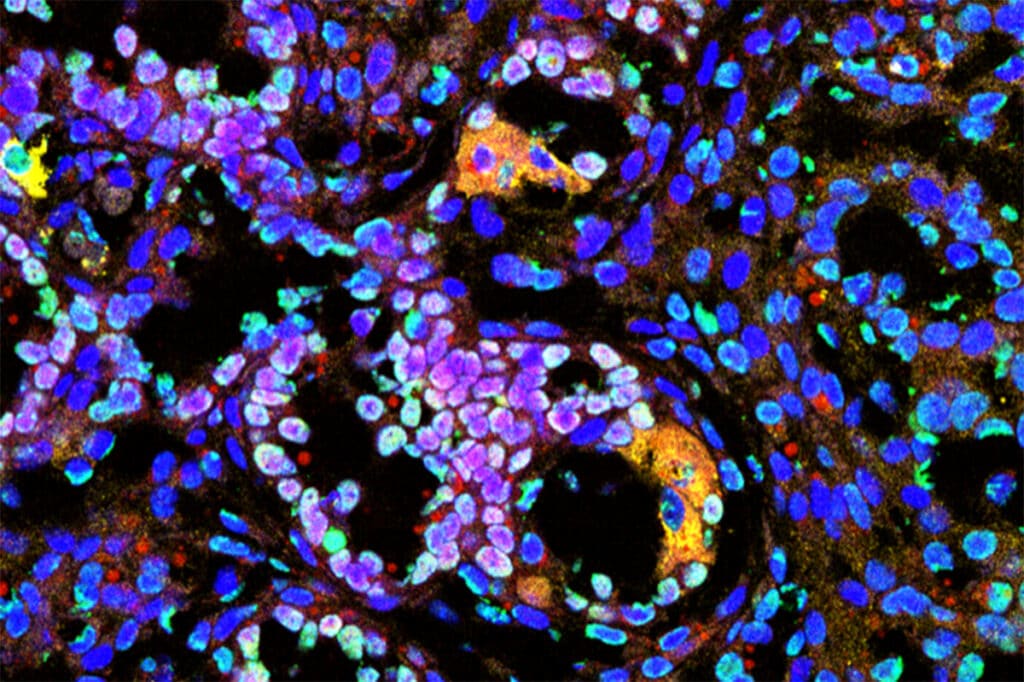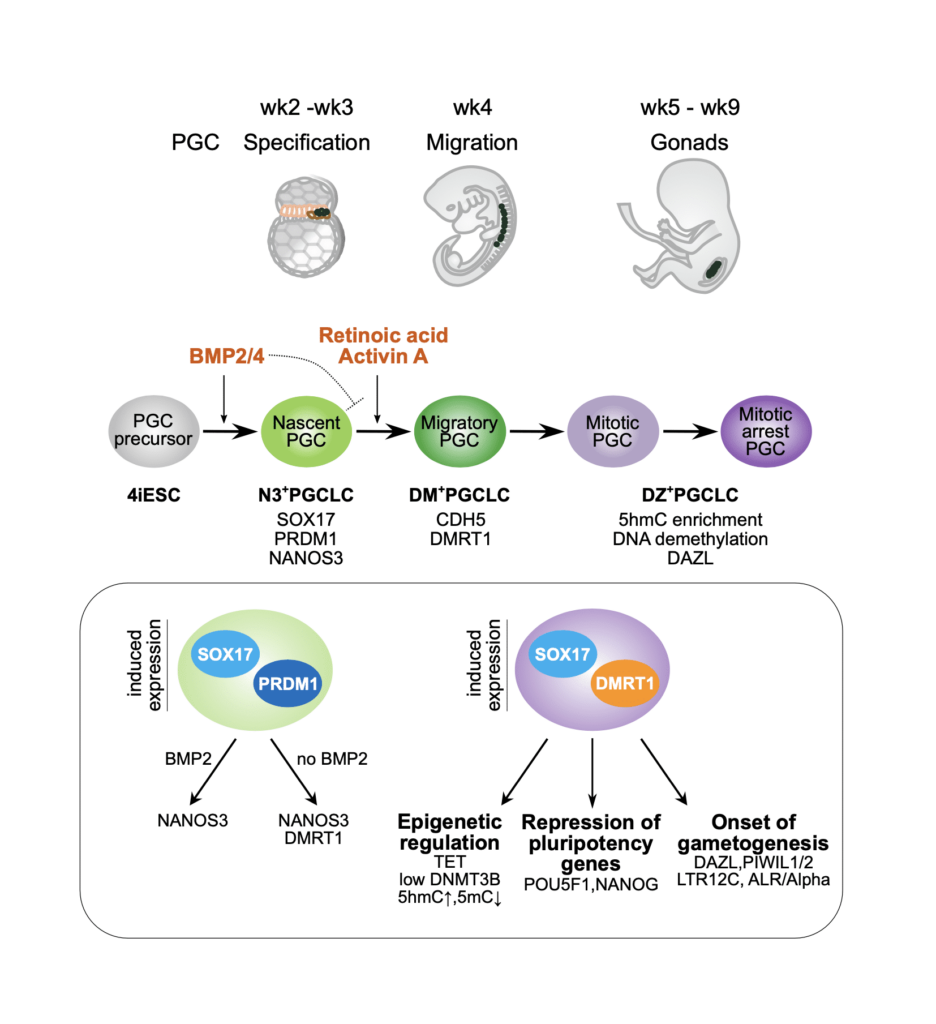Breaking symmetry to establish oocyte identity
November 11, 2021
Read more
In their study, the researchers established a new defined method to induce advanced primordial germ cells using human pluripotent stem cells. The efficient system identified unique essential roles of DMRT1 for genetic and epigenetic programming during human germline commitment. This work has been achieved by a collaborative effort with the Song lab, University of Oxford, and the Vento-Tormo lab, Wellcome Sanger Institute.
Irie, N., Lee, SM., Lorenzi, V. et al. DMRT1 regulates human germline commitment. Nat Cell Biol (2023). DOI: 10.1038/s41556-023-01224-7

Molecular regulation for human germline commitment
Germline commitment following primordial germ cell (PGC) specification during early human development establishes an epigenetic program and competence for gametogenesis. Here we follow the progression of nascent PGC-like cells (PGCLCs) derived from human embryonic stem cells (ESCs) in vitro. We show that switching from BMP signaling for PGC specification to Activin A and retinoic acid resulted in DMRT1 and CDH5 expression, the indicators of migratory PGCs in vivo. Moreover, the induction of DMRT1 and SOX17 in PGCLCs promoted epigenetic resetting with striking global enrichment of 5-hydroxymethylcytosine and locus-specific loss of 5-methylcytosine at DMRT1 binding sites and the expression of DAZL representing DNA methylation-sensitive genes, a hallmark of the germline commitment program. We provide insight into the unique role of DMRT1 in germline development for advances in human germ cell biology and in vitro gametogenesis.